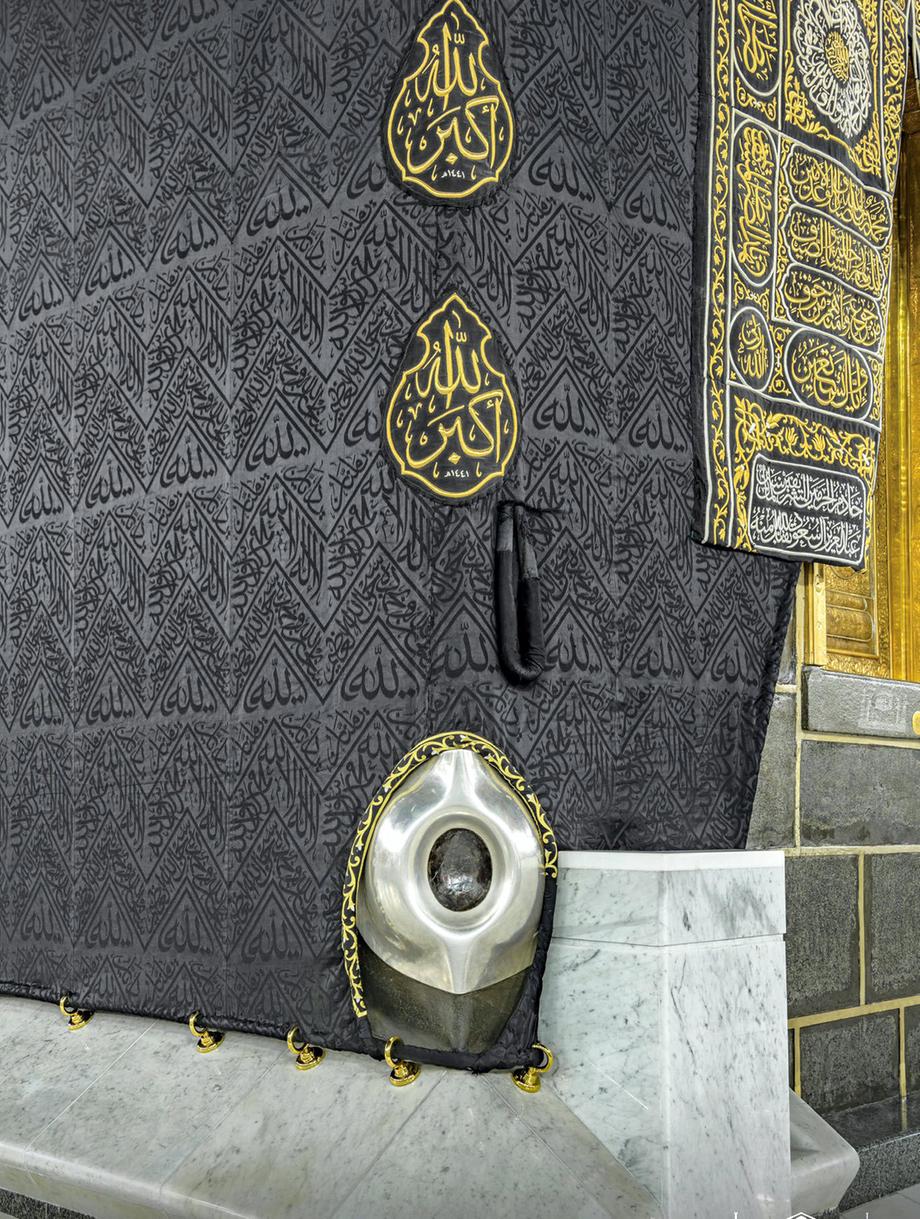
Saudi Arabia releases firstever photos of holy Kaaba stone The Times of Israel
The silver frame around the Black Stone and the black kiswah or cloth enveloping the Kaaba were for centuries maintained by the Ottoman Sultans in their role as Custodian of the Two Holy Mosques. The frames wore out over time due to the constant handling by pilgrims and were periodically replaced.
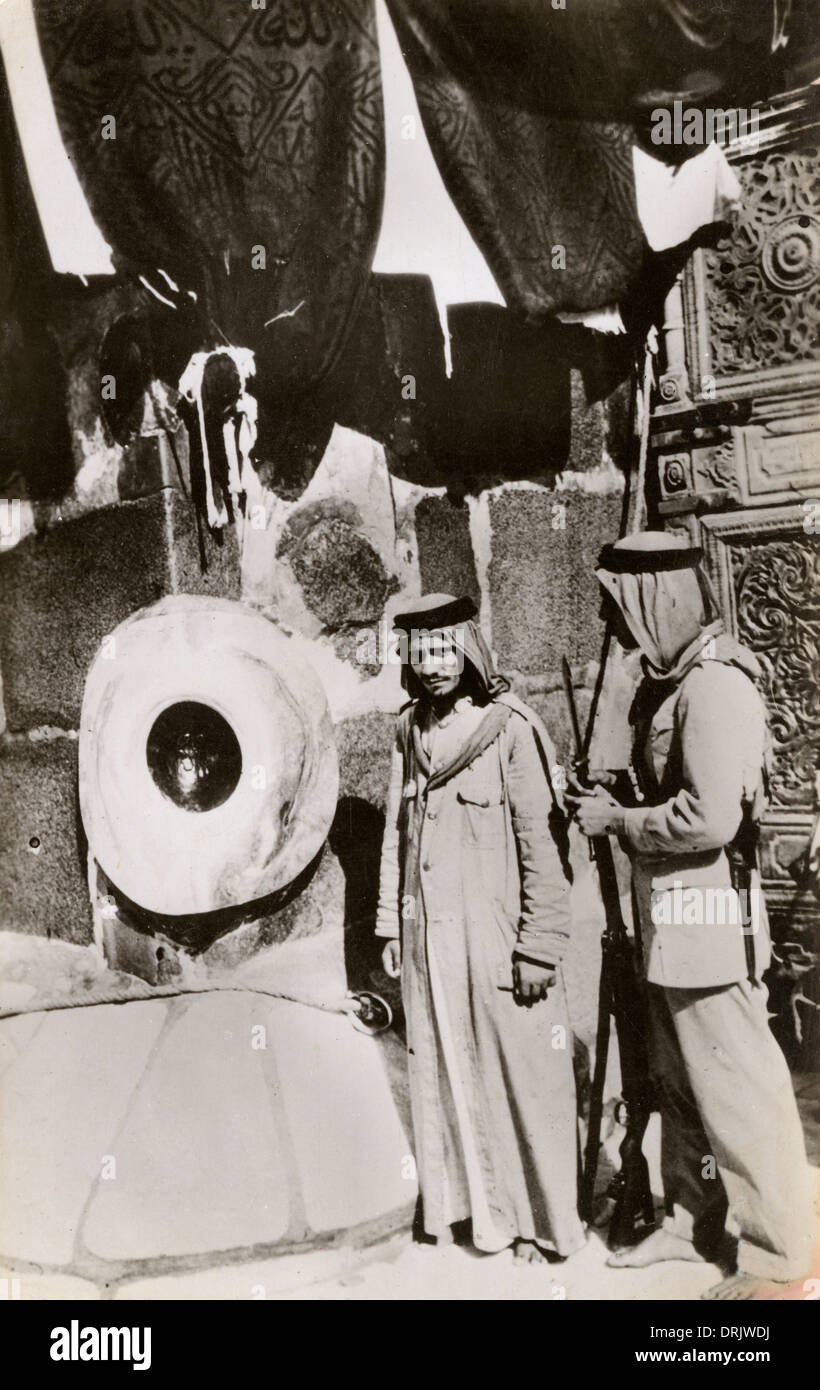
Der schwarze Stein die Kaaba, Mekka, SaudiArabien Stockfotografie Alamy
Der Schwarze Stein, ein antiker heiliger Stein, ist in der östlichen Ecke der Kaaba eingelassen, eineinhalb Meter über dem Boden. Der Prophet Muhammad, Gottes Segen und Frieden seien auf ihm, sagte: "Der Schwarze Stein kam aus dem Paradies, und er war weißer als Milch, aber die Sünden der Söhne Adams haben ihn schwarz werden lassen." [4]
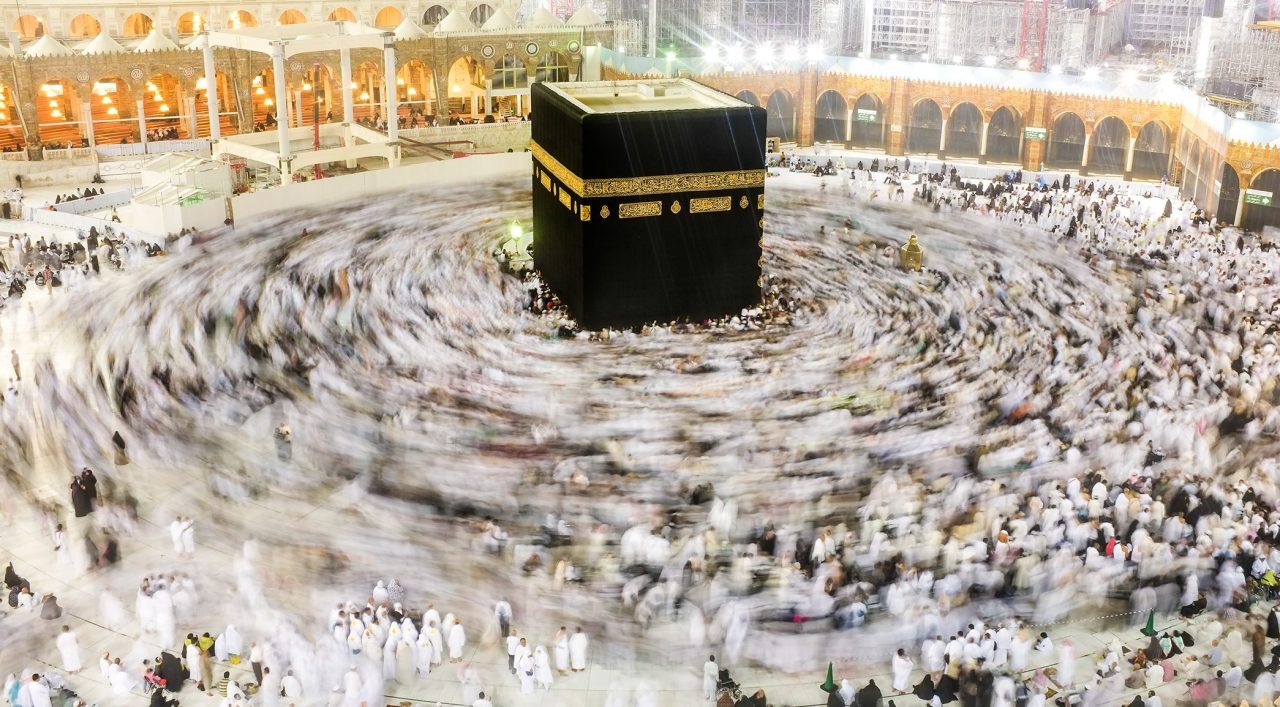
Stein als Kultobjekt Naturstein im Wandel der Zeit STRASSER Steine
Islam Located in the eastern corner of the Kaaba is the Black Stone of Mecca, whose now broken pieces are surrounded by a ring of stone and held together by a heavy silver band. According to tradition, this stone was given to Adam on his expulsion from paradise in order to obtain forgiveness of his sins.

Wenn die Kaaba umkreist wird Hadsch ntv.de
The Kaaba, meaning cube in Arabic, is a square building, elegantly draped in a silk and cotton veil. Located in Mecca, Saudi Arabia, it is the holiest shrine in Islam. Map of Mecca, Saudi Arabia ( NormanEinstein, CC BY-SA 3.0
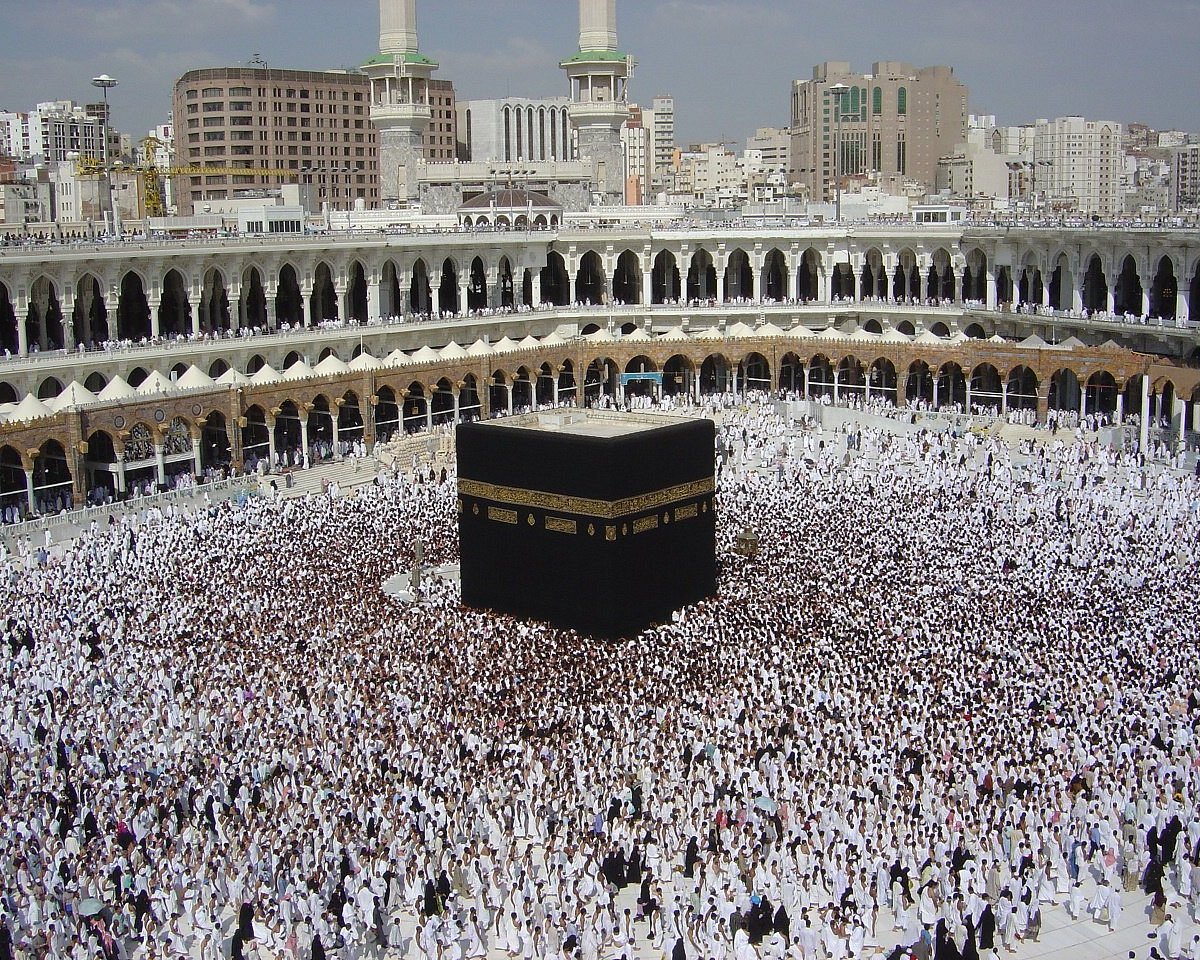
Kaaba, Mecca
How the holy city has changed over the past 100 years. As the sun rises over Mecca on Sunday July 18, up to 60,000 pilgrims dressed in customary white robes called Ihram will begin their five-day long spiritual journey to seek forgiveness for past sins and start anew before God. The Hajj is is one of the five pillars of Islam and a once-in-a.
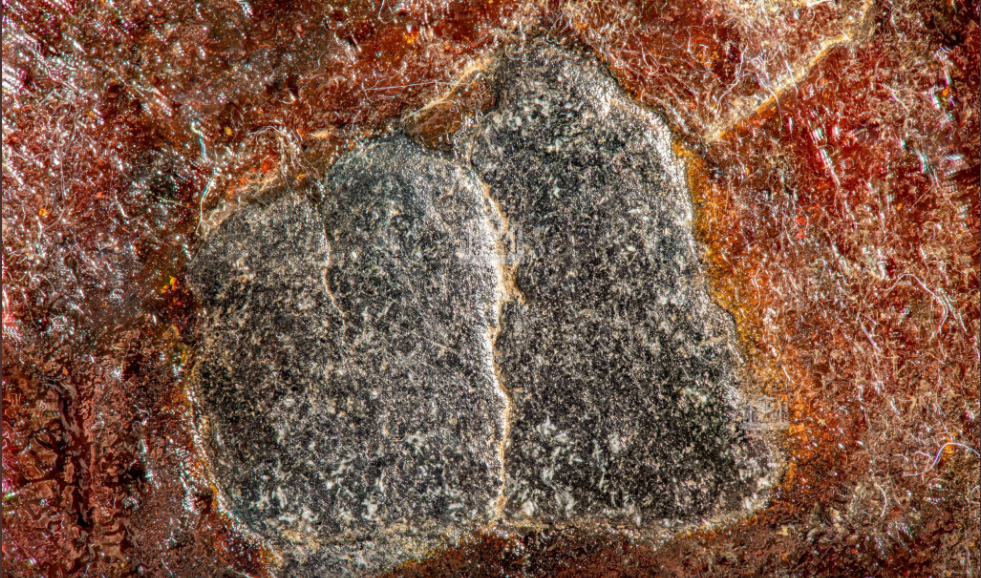
Saudi Arabia releases firstever photos of holy Kaaba stone The Times of Israel
Schwarzer Stein als Teil des Paradieses. In der Ostecke der Kaaba ist der „Schwarze Stein" (Arabisch: „al-Hadschar al-aswad") eingelassen, der heute in Gold eingefasst ist. Erzengel Gabriel soll ihn der Legende nach aus dem Paradies gebracht haben. Auf der Pilgerreise versuchen die Pilger, diesen „Schwarzen Stein" zu berühren oder.
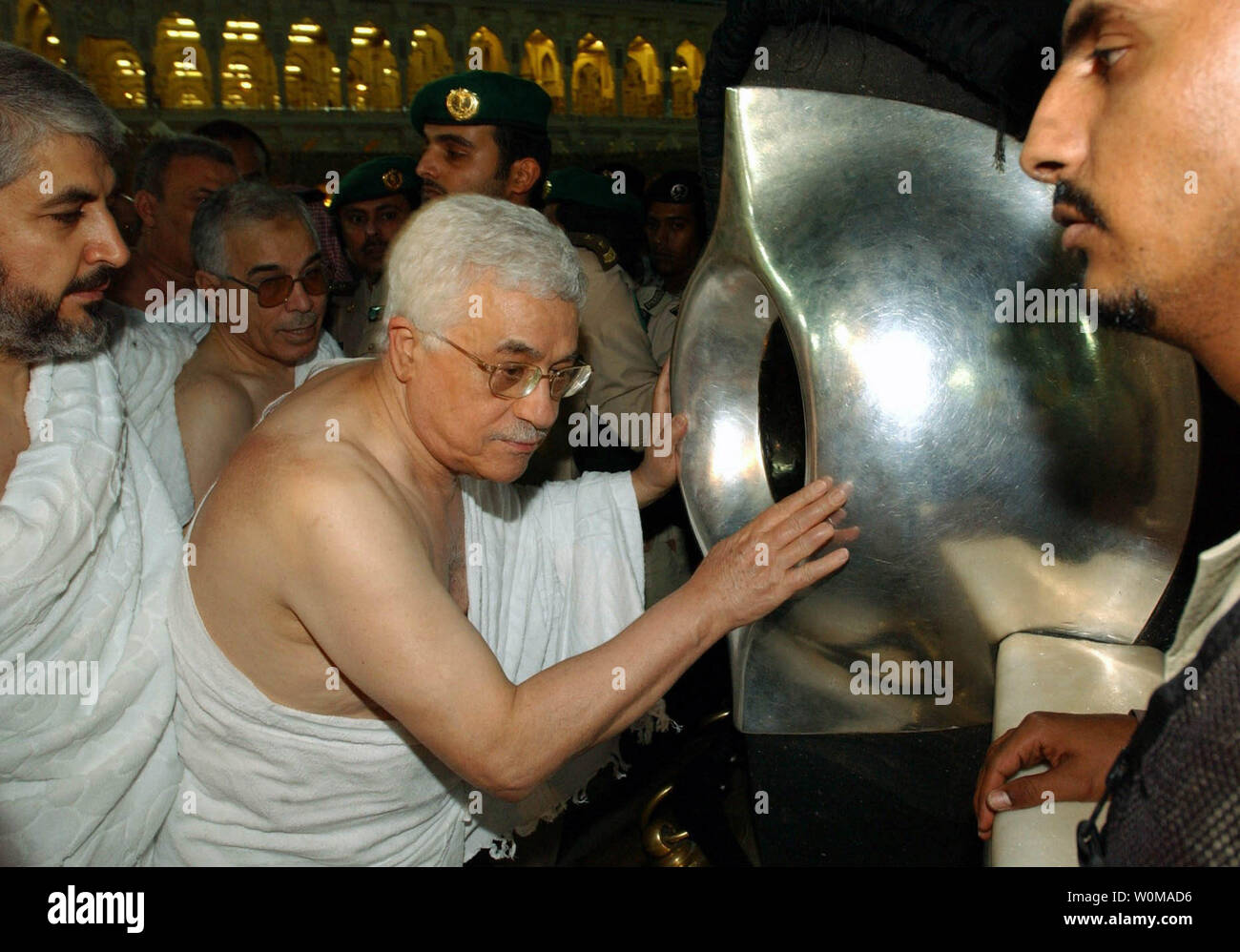
Black stone kaaba Fotos und Bildmaterial in hoher Auflösung Alamy
Pilgrimage to a holy site is a core principle of almost all faiths. The Kaaba, meaning cube in Arabic, is a square building, elegantly draped in a silk and cotton veil. Located in Mecca, Saudi Arabia, it is the holiest shrine in Islam. In Islam, Muslims pray five times a day and after 624 C.E., these prayers were directed towards Mecca and the.
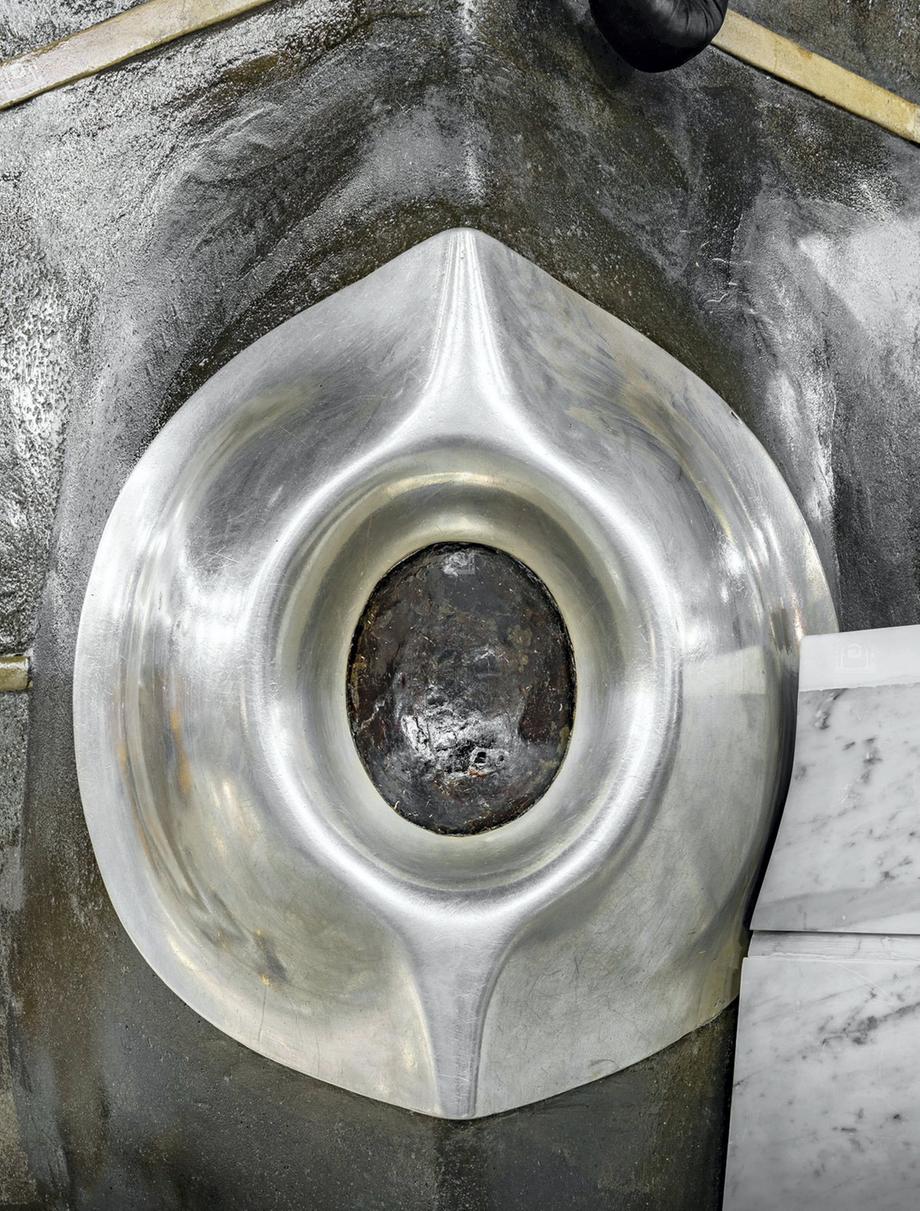
Saudi Arabia releases firstever photos of holy Kaaba stone The Times of Israel
Umhüllt: Die würfelförmige Kaaba ist mit schwarzem Tuch überzogen. An der östlichen Ecke des Gebäudes ist ein besonderer schwarzer Stein eingemauert (Foto von 1890/81).

Mekka Der Wallfahrtsort DER SPIEGEL
Beim täglichen Gebet richten sich Muslime in aller Welt nach der Kaaba aus. Schwarzer Stein als Teil des Paradieses. In der Ostecke der Kaaba ist der „Schwarze Stein" (Arabisch: „al-Hadschar al-aswad") eingelassen, der heute in Gold eingefasst ist. Erzengel Gabriel soll ihn der Legende nach aus dem Paradies gebracht haben.
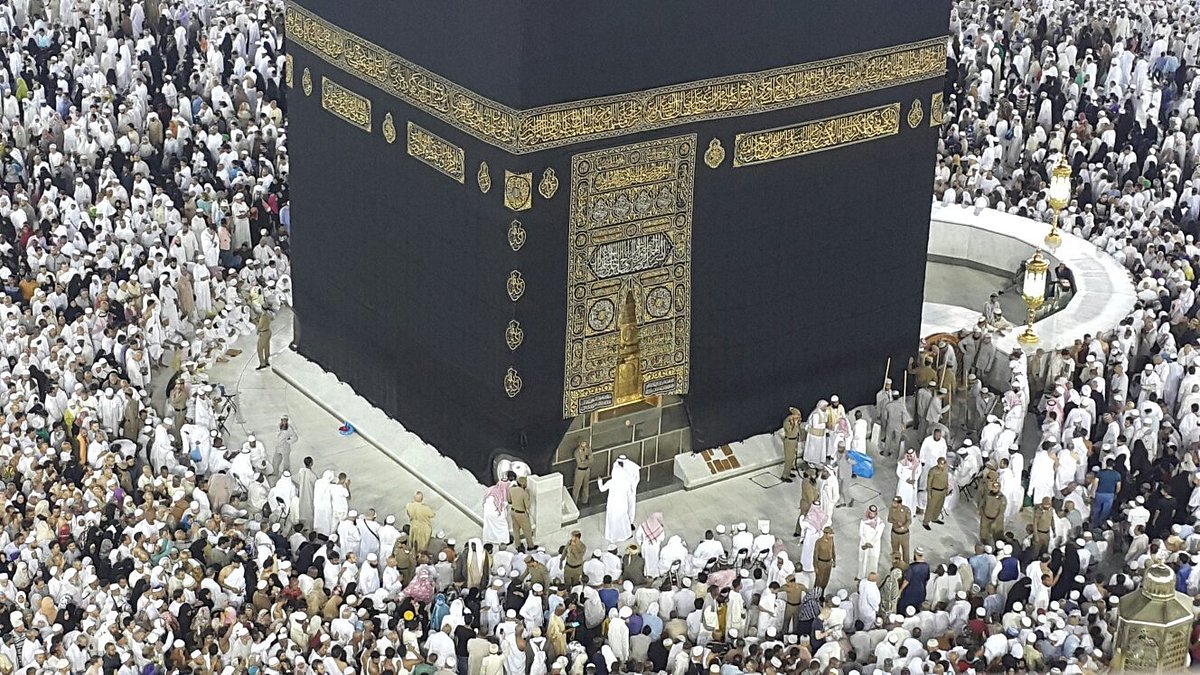
Black Stone (Mecca) All You Need to Know BEFORE You Go
Black Stone of Mecca, Muslim object of veneration, built into the eastern wall of the Kaʿbah (small shrine within the Great Mosque of Mecca) and probably dating from the pre-Islamic religion of the Arabs. It now consists of three large pieces and some fragments, surrounded by a stone ring and held
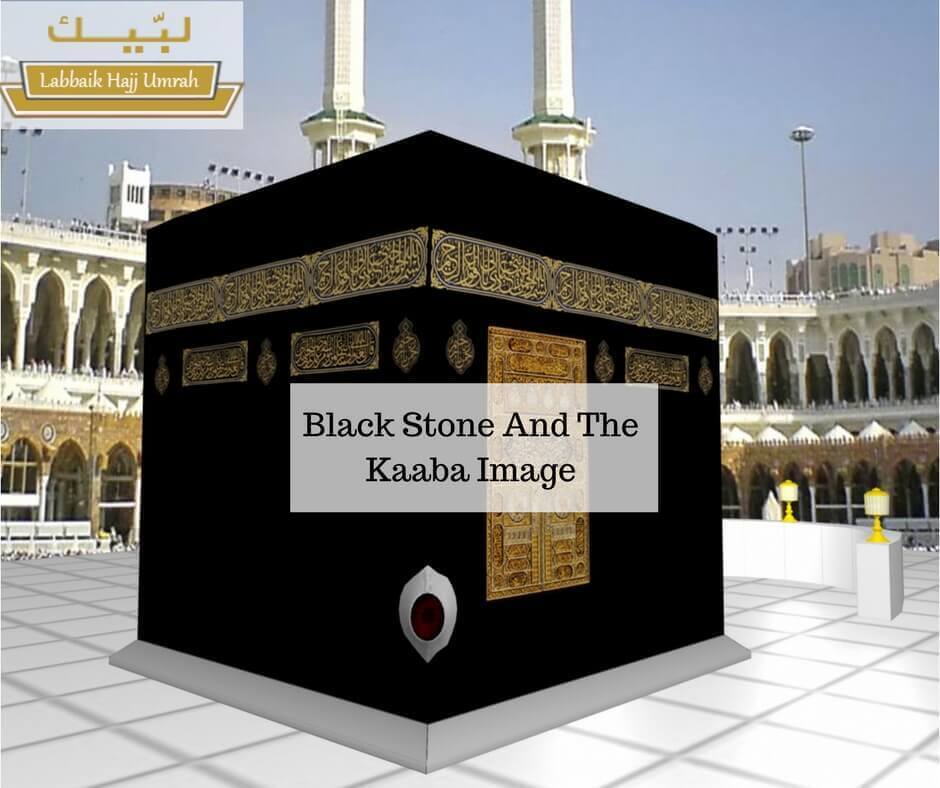
Revelation Prophecy Kaaba Speaks Is the Blackstone [RevelationNow]
Der Schwarze Stein ( arabisch الحجر الأسود, DMG al-ḥaǧar al-aswad) ist ein Kultstein, der an der östlichen Ecke der Kaaba in Mekka eingemauert ist und den Anfangspunkt des Tawāf, der rituellen Umkreisung dieses Heiligtums, markiert. Er wird bei den einzelnen Umkreisungen des Gebäudes durch Küssen, Berühren oder Zeigen mit der Hand verehrt.

History and religious significance of the Black Stone (HijreAswad)
Der Schwarze Stein ( arabisch الحجر الأسود, DMG al-ḥaǧar al-aswad) ist ein Kultstein, der an der östlichen Ecke der Kaaba in Mekka eingemauert ist und den Anfangspunkt des Tawāf, der rituellen Umkreisung dieses Heiligtums, markiert. [1] Er wird bei den einzelnen Umkreisungen des Gebäudes durch Küssen, Berühren oder Zeigen mit der Hand verehrt.
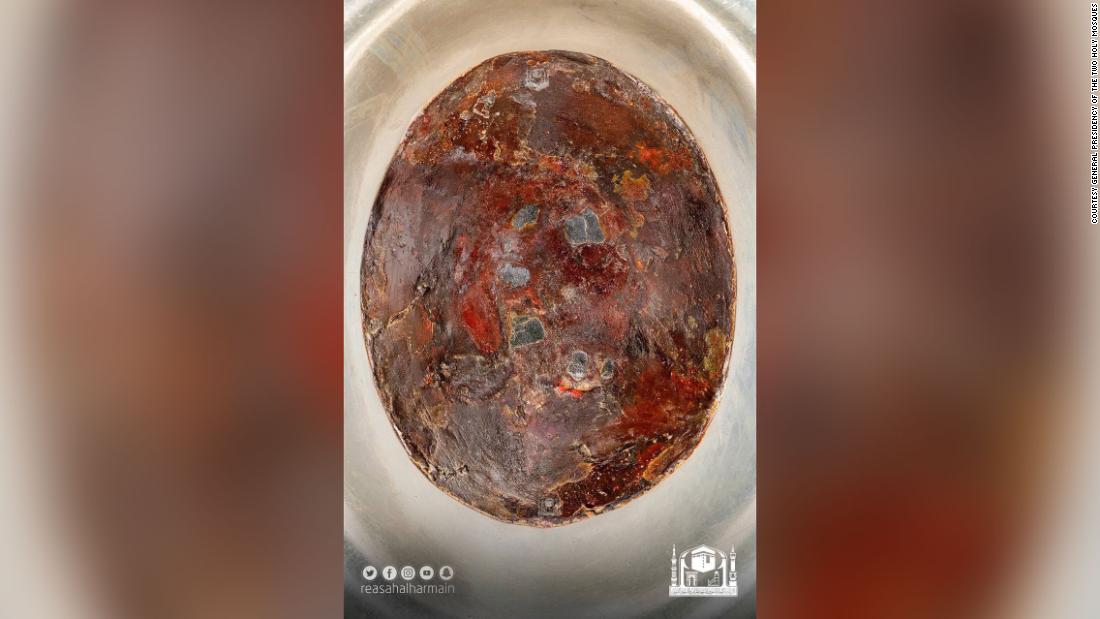
New images of Kaaba's Black Stone of Mecca released CNN Travel
The Kaaba is a cuboid -shaped structure made of stones. It is approximately 15 m (49 ft 3 in) high with sides measuring 12 m (39 ft 4 in) × 10.5 m (34 ft 5 in) wide [83] (Hawting states 10 m (32 ft 10 in). [84] Inside the Kaaba, the floor is made of marble and limestone.

The Black Stone Saudi Arabia Mecca Kaaba Festivals Islam Photo by Haga Library Black
Die besten Möglichkeiten, die Sehenswürdigkeit Schwarzer Stein und ähnliche Highlights in der Umgebung zu erleben. Makkah Holly & Historical Places Halbtagestour. 1. Bustouren. ab. 92,53€. pro Gruppe (bis zu 3 Personen) Heilige Stätten von Mekka / Ziyarat: Privat. 2.

Saudi Arabia releases firstever photos of holy Kaaba stone The Times of Israel
In der Wand der Kaaba, die nach Osten zeigt, befindet sich ein schwarzer Stein in der Mauer. Er hat eine große religiöse Bedeutung für Muslime. Viele Legenden besagen, dass er vom Himmel gefallen ist, doch niemand weiß genau, woher er kommt. Während der Umrundung der Kaaba versuchen viele Muslime, ihn zu berühren oder zu küssen.

Kaaba (Mekka) 3DModell Mozaik Digitale Bildung und Lernen
Glazed ceramic (stonepaste) tile depicting the sanctuary at Mecca know as the Masjid al-Haram, or sacred mosque; at the centre is the Ka'ba, on the left side of which is the black stone that pilgrims try to touch as they circumambulate the Ka'ba; around it are structures that mark the four school of Islamic law: Maliki, Shafi'i, Hanafi and Hanbali; possibly made to commemorate a pilgrimage.